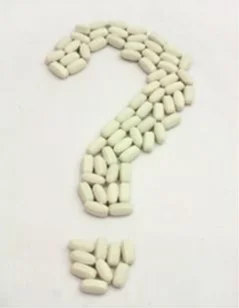Despite the persistent presence of COVID-19, we continue to learn and refine strategies for prevention and treatment.
The COVID-19 vaccines developed by scientists can help protect you from severe infection, hospitalization, and even death. In the event that you do contract COVID-19, there are medications available that can reduce the virus's impact, lower the risk of serious illness, and decrease the chances of death.
Many people are familiar with convalescent plasma and monoclonal antibody therapies for COVID-19. However, the most recent addition to the treatment arsenal are antiviral medications, which are a class of drugs specifically designed to combat infections caused by the COVID-19 virus.
During the initial outbreak of the pandemic, COVID-19 antiviral pills were not yet available. However, they were developed and approved in 2021, and as of early 2022, doctors have begun to prescribe these oral antiviral medications as a means of treating the infection.
Also Read: Covid-19 In Babies And Kids: Symptoms And Prevention
What are the New Antiviral Pills to Treat COVID-19 Infection?
The U.S. Food and Drug Administration (FDA) has granted emergency use authorization (EUA) for two antiviral drugs specifically designed to treat COVID-19.
Pfizer has developed one of the antiviral pills, Paxlovid (Ritonavir-Boosted Nirmatrelvir), while Merk biopharmaceuticals has created another, known as Lagevrio (Molnupiravir).
According to the U.S. Department of Health and Human Services, these medications can prevent the coronavirus from replicating within your body when taken orally. They may also bolster your immune system and reduce the viral load in your body.
As a result, following the guidance of the HHS, you can alleviate discomfort and minimize the likelihood of your illness worsening. Unfortunately, not everyone is able to access the benefits of these medications.
Advantages of COVID-19 Antiviral Pills
The emergence of the omicron variant led to a significant uptick in COVID-19 cases, and there are indications that yet another mutation may have already occurred. Similar to influenza and the common cold, these viruses mutate and evolve over time. However, the current COVID-19 antiviral medications have demonstrated efficacy against the omicron variant, reducing hospitalization and mortality rates.
Can You Take These Antiviral Pills?
As already discussed, these COVID-19 antiviral pills are not suitable for everyone. Therefore, you must know whether you can take these medicines or not.
- COVID-19 antiviral pills may not be suitable for everyone, so it's important to determine whether it's safe for you before taking any medication.
- Paxlovid is the recommended oral antiviral medication for treating COVID-19, but it may not be appropriate for individuals with severe renal or liver disease or those taking certain medications.
- Paxlovid has been approved by the FDA for use in high-risk individuals who are 12 years or older and weigh at least 88 pounds.
- Lagevrio is approved for individuals who are 18 years or older and at high risk, but it should not be used by women who are pregnant, nursing, or younger than 17 years of age.
- Both antiviral medications are intended for people who have experienced mild to moderate COVID-19 symptoms within the last five days and are at risk of experiencing more severe responses.
- Individuals who are 65 years of age and older, have cancer, HIV, or are pregnant are at higher risk and should take extra precautions.
Also Read: Perils of Brain Stroke and How to Prevent It
When Should You Take These COVID-19 Antiviral Pills?
Antivirals work best when taken as soon as possible after an individual becomes infected, ideally before showing any symptoms or within five days after diagnosis or the onset of symptoms.
The faster the medications enter the body, the more effective they can be in eliminating the SARS-CoV-2 virus before it takes hold of the immune system.
However, taking these pills in a timely manner may be difficult for individuals who become ill but not immediately after infection, as they need a prescription from a doctor to start treatment at the ideal time.
Antivirals are primarily recommended for individuals who are at high risk of developing severe COVID-19. However, they may not be necessary for those who do not feel sick enough to require them.
How Do Paxlovid and Lagevrio Antivirals Work?
Antiviral medications for COVID-19 help your body fight the disease by inhibiting the virus from replicating, which leads to a reduction in symptoms and disease duration.
Paxlovid is a combination of two antiviral medications, Nirmatrelvir and Ritonavir. Nirmatrelvir prevents COVID-19 from replicating, which inhibits the virus from generating copies of itself. Due to Ritonavir's ability to slow down the breakdown of Nirmatrelvir, the medication can remain in the body at higher levels for an extended period.
Furthermore, Lagevrio prevents COVID-19 from replicating by tricking the virus into incorporating it into its genetic material. This inhibits the virus from copying itself.
Do These Antivirals Have Side Effects?
Both antiviral medications may have potential adverse effects. The following are the common side effects:
- Paxlovid's statistical analysis suggests that the medication's potential adverse effects may include allergic reactions, liver issues, nausea, elevated blood pressure, altered taste perception, and stomach discomfort. The antiviral may also cause resistance to HIV medication, which could affect the effectiveness of future HIV treatment if you have HIV and do not receive treatment.
- Adverse reactions from using Lagevrio may include allergic reactions, diarrhea, nausea, and dizziness.
Combining antivirals with other medications may have negative side effects or affect their efficacy. Before starting these therapies, inform your healthcare practitioner of all the medications you take, including vitamins, birth control, and herbal supplements.
Also Read: Foods to Help Lower Your Anxiety
Final Thoughts
While these antiviral pills are effective treatments, they cannot replace vaccinations. According to data, individuals who have not received the COVID-19 vaccine are twice as likely to contract the disease again than those who have. Therefore, getting the COVID-19 vaccination and your booster is the best way to prevent serious illnesses from COVID-19 infection, including hospitalization and death.




.webp)


%20(1).png)
.png)
%20(1).png)


%20(1).png)




%201.png)
